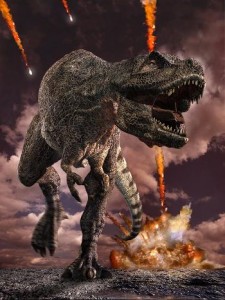 The problem with knowledge and children is that a little bit of knowledge leads to more questions, and soon you are working your way down the ever-dimmer hallways of understanding that inevitably lead to the one thing we don’t want our 4-year-old to know: that we and everyone she will ever know and love will die, and that this blue-green wonderland she lives in will itself burn to dust, its ashes doomed to float for all eternity throughout the frozen, uncaring cosmos.
The problem with knowledge and children is that a little bit of knowledge leads to more questions, and soon you are working your way down the ever-dimmer hallways of understanding that inevitably lead to the one thing we don’t want our 4-year-old to know: that we and everyone she will ever know and love will die, and that this blue-green wonderland she lives in will itself burn to dust, its ashes doomed to float for all eternity throughout the frozen, uncaring cosmos.
This is, inevitably, the lesson of the wonderful (and hellaciously crowded) American Museum of Natural History, which dares us to explain the concept of extinction. We try to be factual, of course, answering Dalia’s questions by telling her that people think a meteor hit the earth and that started the events that led to the extinction of all those dinosaurs she is fascinated by. But now she won’t stop talking about the meteor. How did it get here? What happened when it hit? Are there more out there? This is the intelligence of children: she may not be able to count past 12, but she immediately grasped the most existential truth about the story of extinction. Life is precarious, big rocks rain down from nowhere, and everything ends. We have assured her that no meteor is coming to Earth (not soon, at least), but I sense her mistrust of our answer.
Also true, though: as she gets older, I think she is starting to tell herself lies and believe ours, and she allows herself to be comforted by them. So now when we tell her (because she asks a lot) that we are never going to die and that neither she nor her brother will ever grow old and die either, she doesn’t follow up with skeptical questions like she used to. She stops there, as if all she needed to hear was us saying that we all live forever, whether or not she really believes it.
But back to the dinosaurs. I love that she is fascinated by them. It seems a rite of childhood passage. But do dinosaurs present an existential dilemma for all children, or just for my dark-minded daughter?
